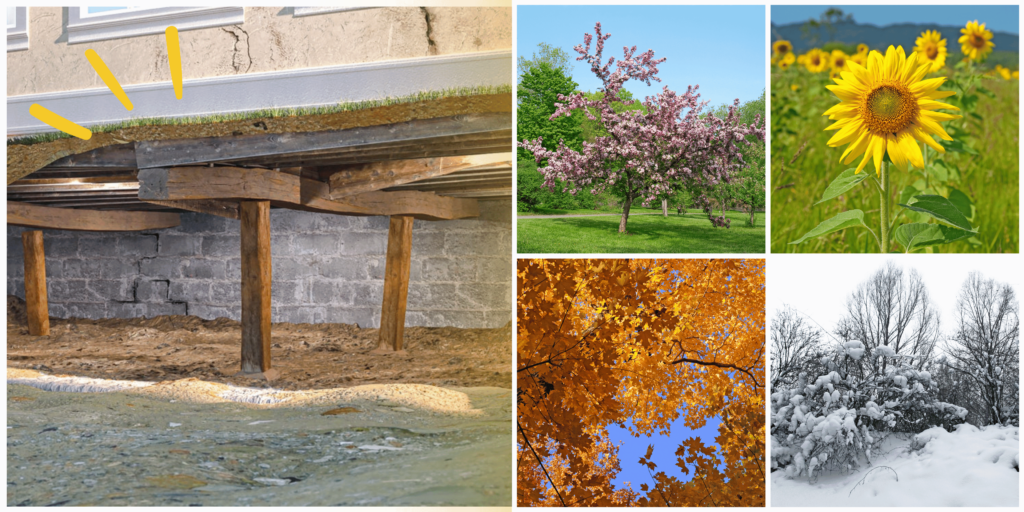Seasonal Crawl Space Maintenance Tips for Tennessee Homes
Maintaining a healthy crawl space is essential for preserving your home’s foundation and indoor air quality, especially with Tennessee’s seasonal weather changes. Regular crawl space maintenance can prevent common issues like excess moisture, mold growth, and structural damage. Use this seasonal checklist to keep your seasonal crawl space maintenance in top shape year-round. At TFS, The Foundation Specialists, we offer free inspections for homeowners. Learn more about your home today by contacting our local office customer care team.
Spring Maintenance: Preparing for Humidity and Pollen
Spring in Tennessee often brings humidity and rain, which can create moisture issues in your crawl space. Here’s how to prepare:
Inspect for Moisture:

- Firstly, look for any standing water or signs of dampness. In detail, excess moisture can lead to mold, mildew, and rot in your crawl space and even impact the air quality in your home.
Check for Mold and Mildew:
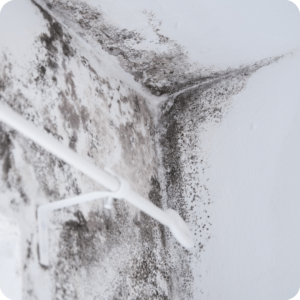
After that, use a flashlight to check for visible mold or mildew growth on wooden supports or insulation. Mold thrives in damp environments and can quickly spread.
Clean Vents and Remove Debris:

- Additionally, clear out any debris or blockages around crawl space vents to improve ventilation. Fresh air circulation helps reduce humidity levels and keeps your crawl space dry.
Inspect Insulation:

- After that, look for any damaged or wet insulation, as this can lose effectiveness. Damp insulation should be replaced immediately to prevent mold growth.
Schedule a Professional Inspection:

- Overall, spring is an ideal time to have professionals assess your crawl space for waterproofing, foundation issues, or mold treatment. Remember, catching small issues early can prevent costly repairs later.
Summer Maintenance: Preventing Excess Heat and Humidity
Summer temperatures in Tennessee can intensify crawl space issues, making it essential to keep an eye on moisture levels and ventilation.
Monitor Humidity Levels:

- Firstly, check the humidity with a hygrometer. Aim for 30-50% humidity in your crawl space. If the level is higher, consider a crawl space dehumidifier.
Inspect Vapor Barrier:
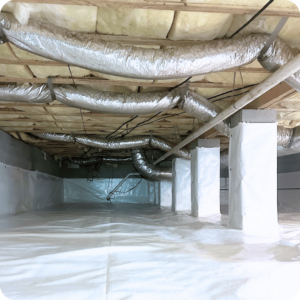
- Additionally, a vapor barrier helps block moisture from the ground. Inspect it for any rips, tears, or gaps that may allow moisture to seep in.
Seal Any Cracks:
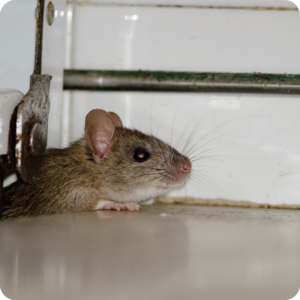
- Overall, summer is an excellent time to check your crawl space walls for small cracks or gaps that could let in moisture or pests. Sealing these helps prevent structural issues and keeps out unwanted critters.
Check Ventilation:
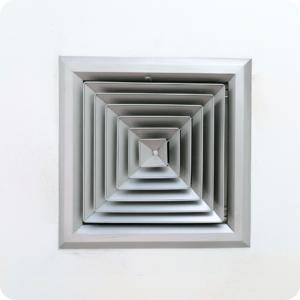
- After that, ensure vents are unobstructed to allow for airflow. In humid areas, you may even consider encapsulation, which seals off the crawl space to protect against moisture.
Insulate Pipes:

- Additionally, in summer, condensation on uninsulated pipes can drip onto the crawl space floor, adding unnecessary moisture. Pipe insulation can help prevent this.
Fall Maintenance: Preparing for Cooler Temperatures
As fall approaches, it’s essential to prepare your crawl space for cooler temperatures and increased rainfall.
Inspect for Water Damage:

- Overall, fall rains can cause water to pool around your foundation, leading to leaks. Check your crawl space walls and floor for any signs of recent water damage.
Check the Foundation:

- Firstly, look for any signs of foundation shifts or cracks around the crawl space. Catching these early can prevent larger issues.
Inspect Drainage Systems:
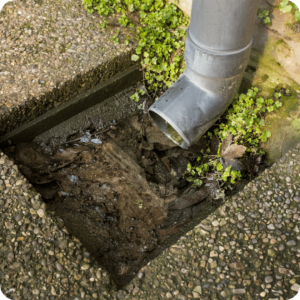
- After that, make sure your downspouts and gutters are directing water away from your home. Pooling water around the foundation can seep into your crawl space.
Seal Vents:
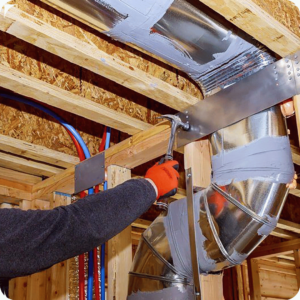
- Additionally, as the weather cools, it may be beneficial to seal vents to retain warmth in the crawl space, which can help prevent frozen pipes in winter.
Inspect Insulation:
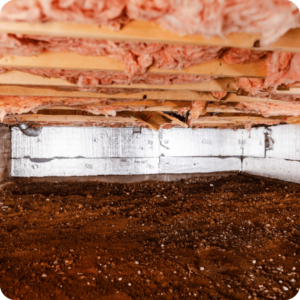
- Lastly, replace any worn or damaged insulation before winter. Insulation protects pipes from freezing and helps regulate the temperature in your crawl space.
Winter Maintenance: Protecting Against Freezing Temperatures
Winter in Tennessee can bring cold snaps, making it essential to protect your crawl space from freezing temperatures.
Check for Air Leaks:
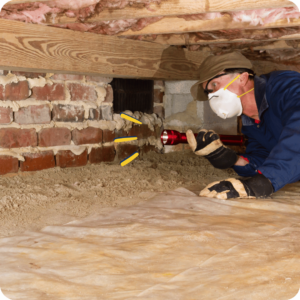
- Firstly, look for drafts and seal any cracks or gaps where cold air could enter the crawl space. Preventing drafts will help keep your pipes from freezing.
Insulate Pipes:
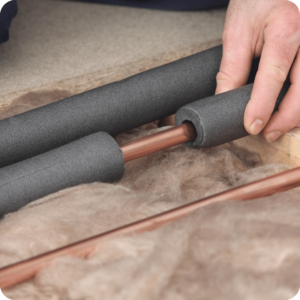
- After that, make sure all pipes are well insulated to prevent freezing. Frozen pipes can burst, leading to costly repairs and potential water damage.
Inspect Crawl Space Doors:

- Additionally, ensure the door to your crawl space is properly sealed and insulated. A well-sealed door helps keep out cold air and pests.
Check the Vapor Barrier:
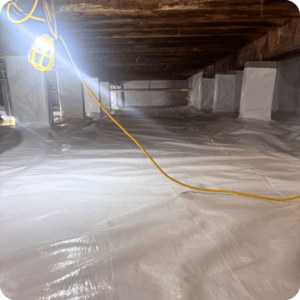
- Overall, make sure the vapor barrier is intact to prevent moisture build-up, which can still be an issue even in colder weather.
Monitor for Critters:
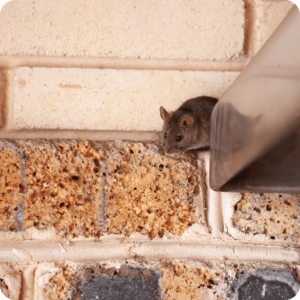
- Lastly, as temperatures drop, animals may try to seek shelter in your crawl space. Check regularly for signs of critters, as they can cause damage to insulation and wiring.
Long-Term Benefits of Seasonal Crawl Space Maintenance
Following these seasonal tips helps ensure your crawl space remains healthy, protecting your home from moisture damage and structural issues. Proactive maintenance not only prevents costly repairs but also supports a healthy indoor environment, reducing allergens and improving air quality.
Crawl Space Encapsulation by TFS
Our team at TFS excels in crawl space encapsulation, providing top-notch moisture control. We use a 20 mil vapor barrier made from seven layers of high-density polyethylene, low-density polyethylene, and polyester cord. This material comes with a 25-year warranty, ensuring durability and peace of mind. Additionally, we recommend the Aprilaire 1850 dehumidifier to manage humidity effectively. This system offers a high-performance, Energy Star-rated solution that fits snugly into tight spaces, promoting better air circulation and reducing temperature and humidity fluctuations.

Let TFS Protect Your Home Year-Round
At TFS, The Foundation Specialists, we understand the importance of a healthy crawl space in every season. Our experts can assess your crawl space, provide moisture control solutions, and offer repairs to ensure your crawl space remains in excellent condition. For long-lasting results and expert service, contact TFS today and protect your home year-round.
For regular tips and industry updates, follow us on Instagram and Facebook.

